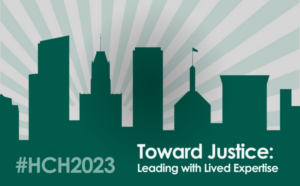Health can be directly impacted by social determinants, such as access one’s to care and physical environment. Because individuals living in temporary housing are often disproportionately affected by these Social Determinants of Health (SDoH), our organization created a study to assess the risk factors related to socio-environmental conditions. The study utilized a 34-item questionnaire that was developed and pilot tested through direct feedback from patients living in an urban shelter system.
Through an iterative research process that involved nearly 400 patients, results identified several SDoH that disproportionately affected our patients. Lack of food, clothing, social support, and adequate housing were the most often cited needs of our respondents, with many stating that they didn’t know where to go to find information or acquire necessities. The results of this study directly informed the development of our life-skills programming and expansion of the health-education department. Building on the enthusiasm and investment of our patients, we created evidence-based, innovative programs that are “more than healthcare.” Our life-skills team builds upon patient strengths to help resolve and address patients’ barriers and stressors. Our education department has introduced relevant programming such as financial literacy, personal advocacy and nutrition as well as individualized goal-setting sessions. While innovative, these programs are not one-of-a-kind and can be replicated by other organizations with policy implications. The expectations of this workshop will be to help organizations identify SDoH among the unhoused populations and discuss ways in which they can build similar programs to mitigate adverse and elevate beneficial SDoH for their patients through the “more than healthcare” approach.
Speakers: Sarajane Brittis: The Floating Hospital; Igda Martinez: The Floating Hospital; Meghan Miller: Director of Health Education, The Floating Hospital.
Session Materials:



